Friends of
JACK PRIMATE SANCTUARY
is committed to rescuing primates and other endemic wildlife in the Democratic Republic of the Congo.
who we are
Friends of JACK Primate Sanctuary is a 501(c)(3) US nonprofit organization which raises awareness to the plight of primates and other endemic wildlife affected by the illegal wildlife trade in the Democratic Republic of the Congo.
As the official US partner to JACK Primate Sanctuary in the DRC, we provide funding to help rescue primates and other wildlife from the illegal wildlife trade and fund projects to support the care and welfare of rescued animals at the sanctuary.
We also support efforts to combat the bushmeat trade and illegal wildlife trafficking in the country.
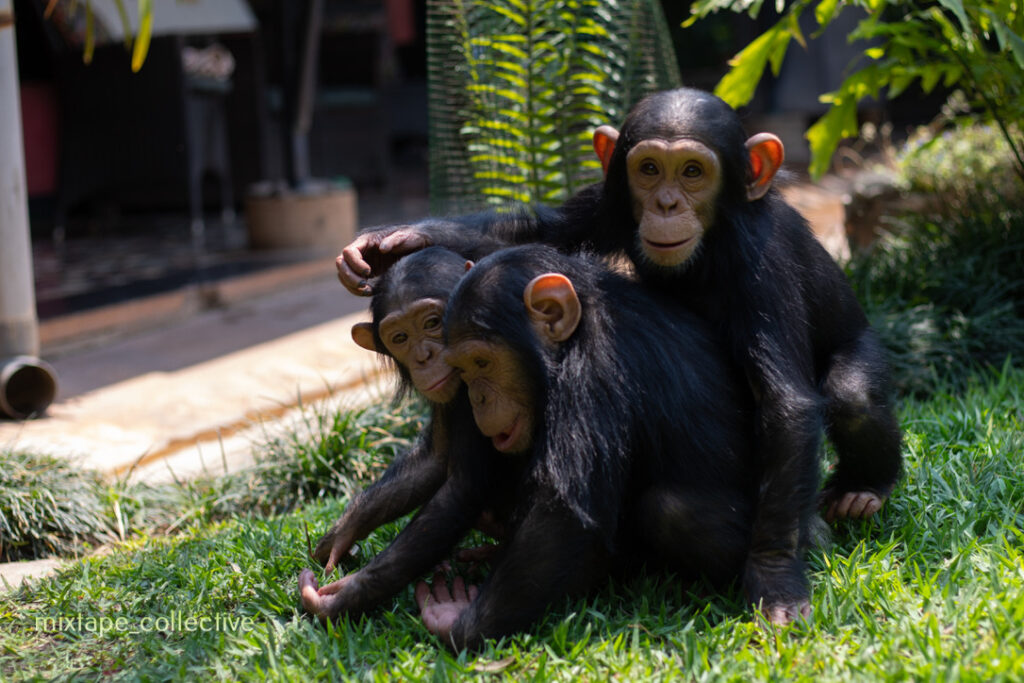
BE A HERO FOR AN ORPHANED CHIMP
Each rescue can cost thousands (transport, vet care, quarantine and personalized care). Please help us with a tax-deductible donation so we can rescue these forgotten victims of the bushmeat and illegal wildlife trade.
JACK SANCTUARY'S OTHER VICTIMS OF ILLEGAL WILDLIFE TRAFFICKING
The Democratic Republic of Congo (DRC) is home to a diverse array of old world monkey species, many of which are tragically victims of the illegal wildlife trade. Among these primates are the highly endangered Lesulas, as well as various species of colobus monkeys, the snub-nosed monkey, and various species of mangabey monkeys.
Poaching and the illicit trade in wildlife pose significant threats to these magnificent creatures, as their distinctive features and unique behaviors make them prime targets for exploitation.
Despite conservation efforts to protect these primates and the ecosystems they inhabit, the illicit wildlife trade continues to flourish, driven by demand for bushmeat, traditional medicines, and the pet trade.
Safeguarding the future of these old world monkeys in the DRC requires not only strengthened enforcement of wildlife protection laws but also community engagement, habitat preservation, and international cooperation to combat this devastating trade.
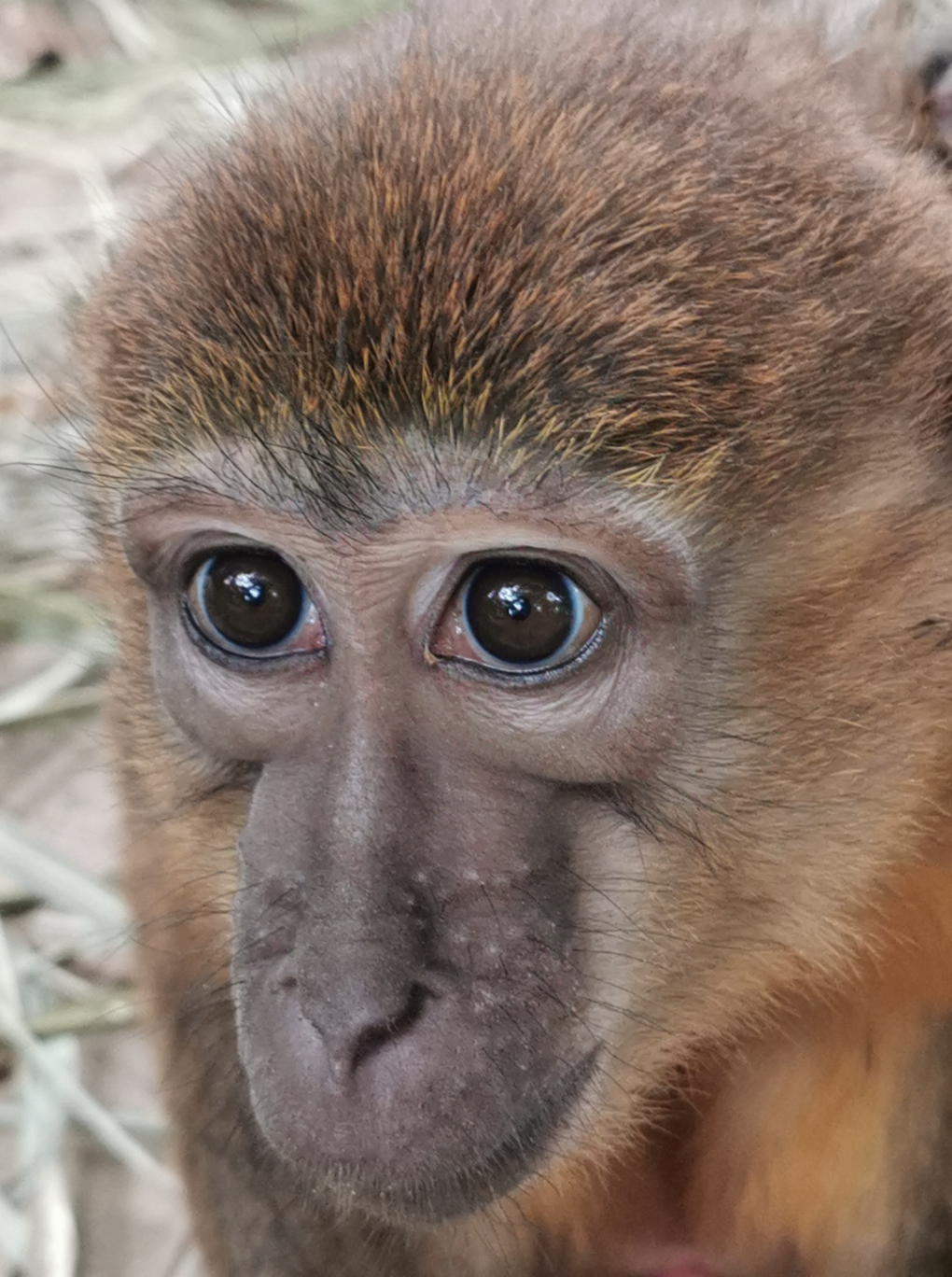
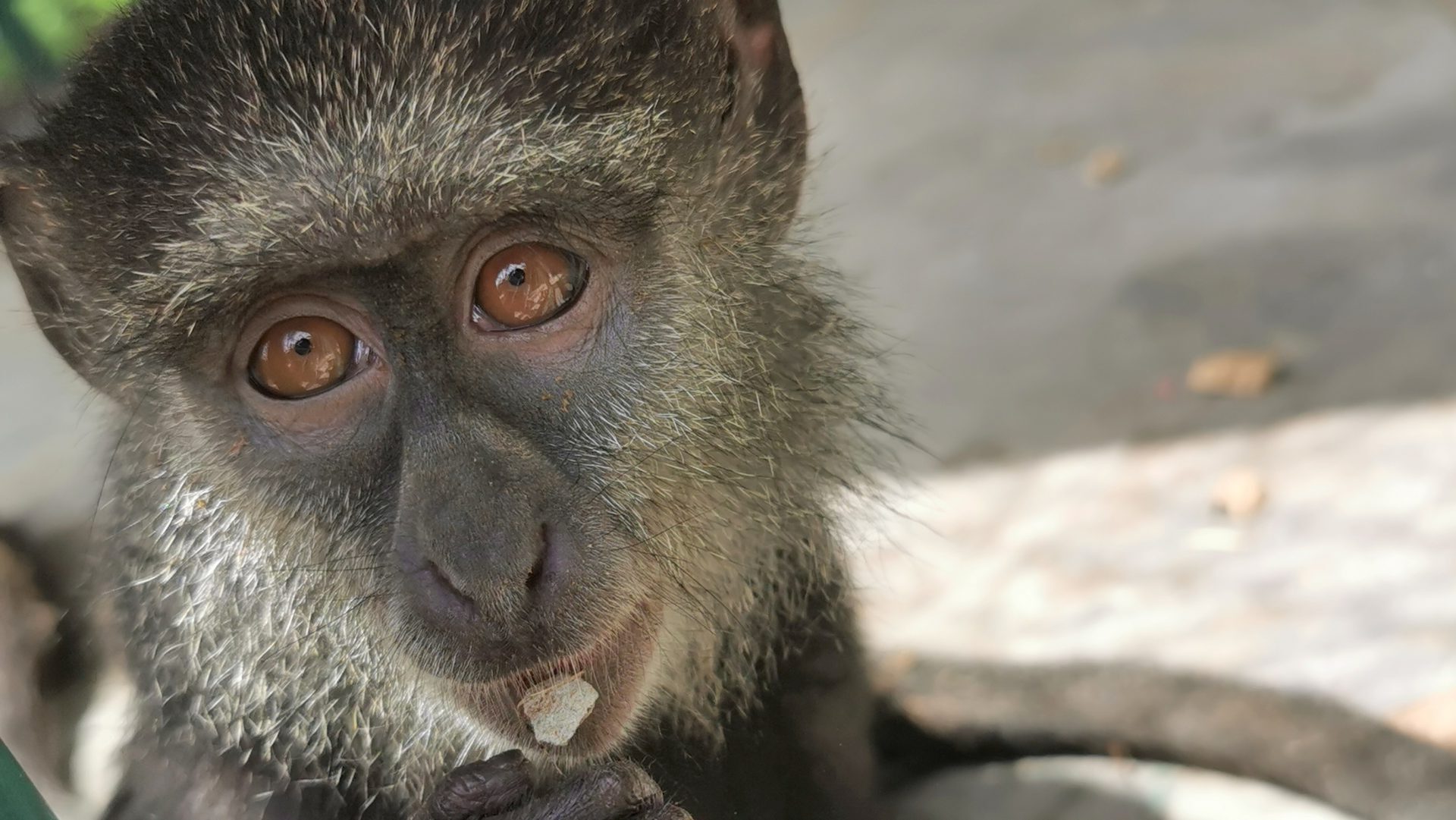
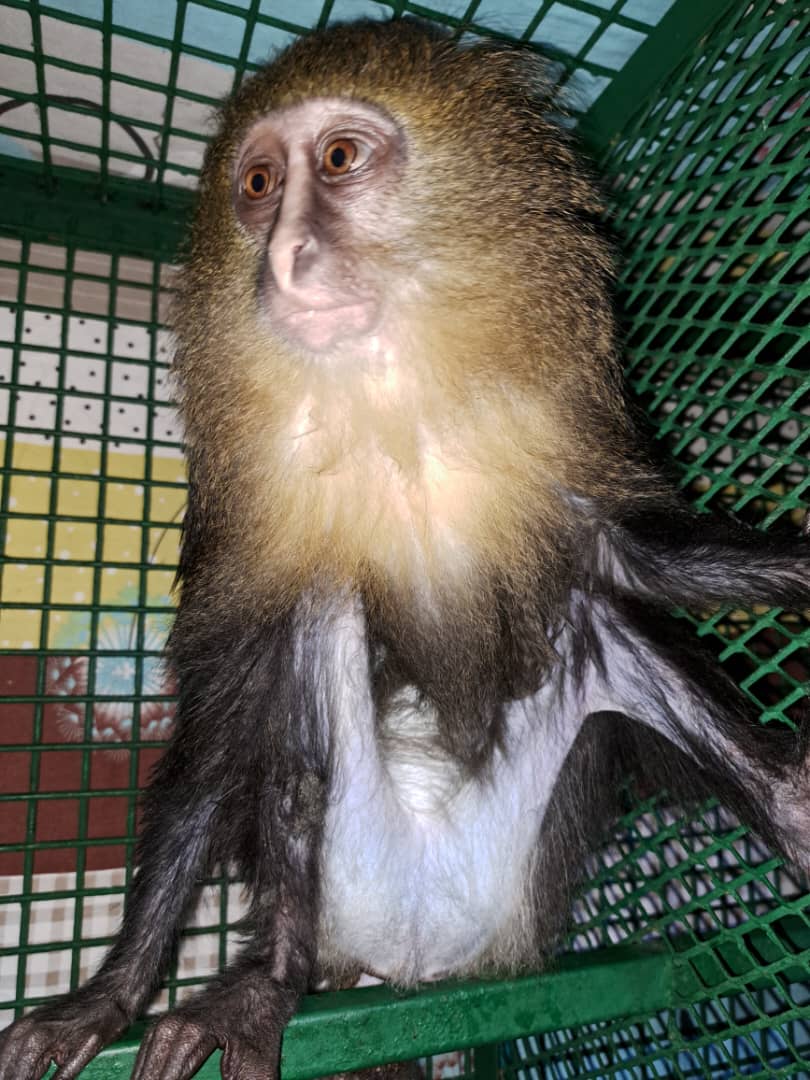
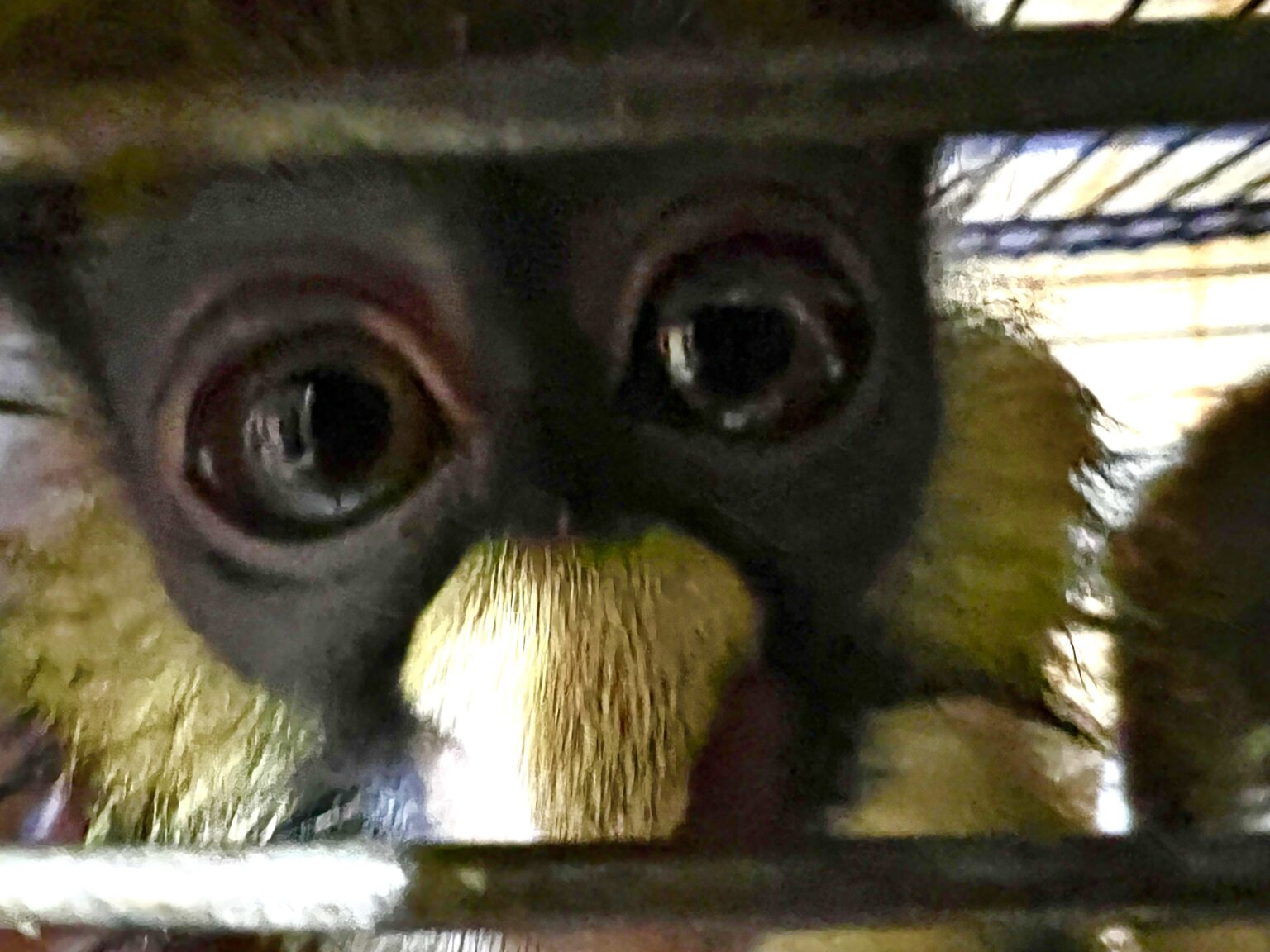
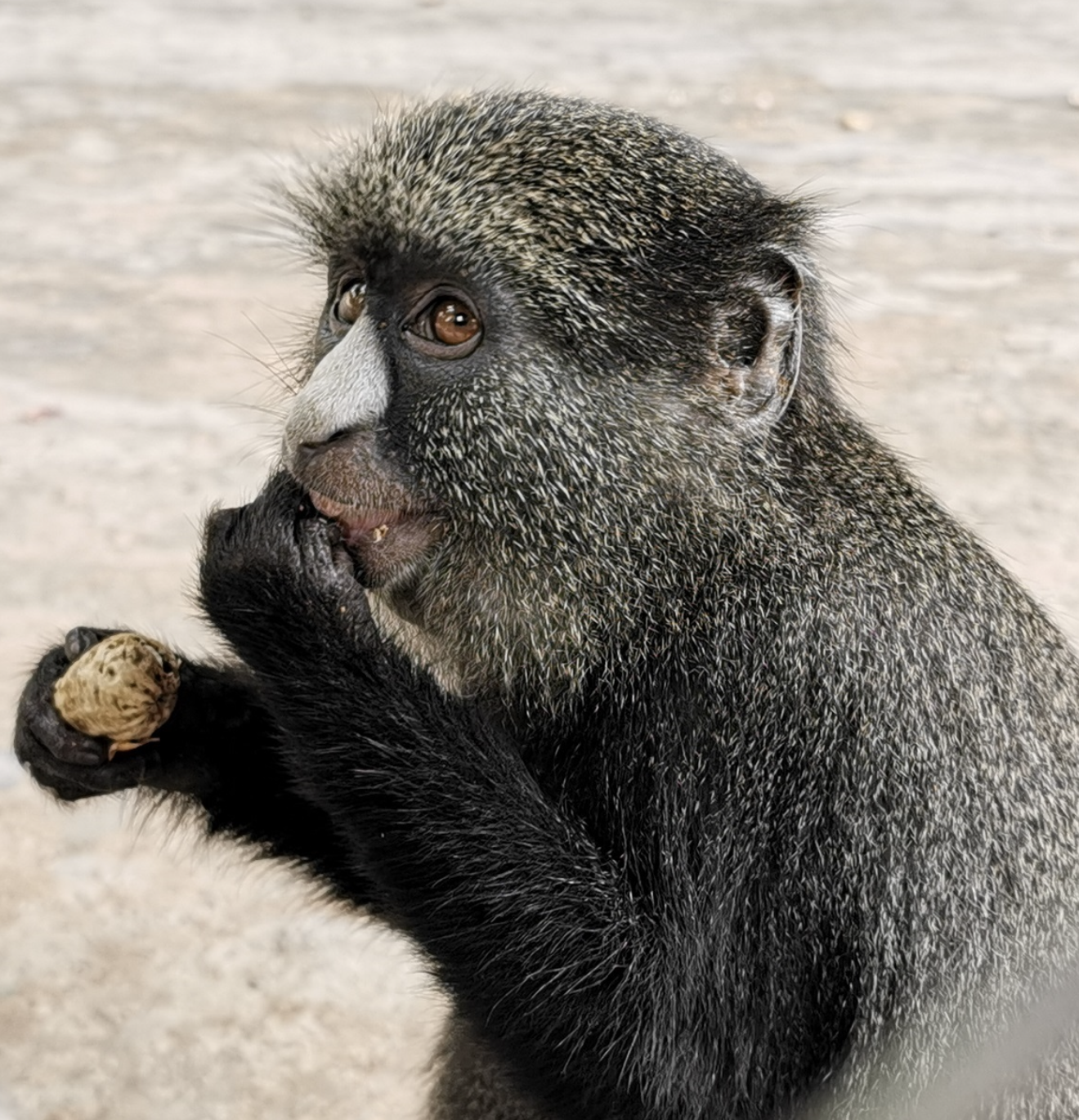
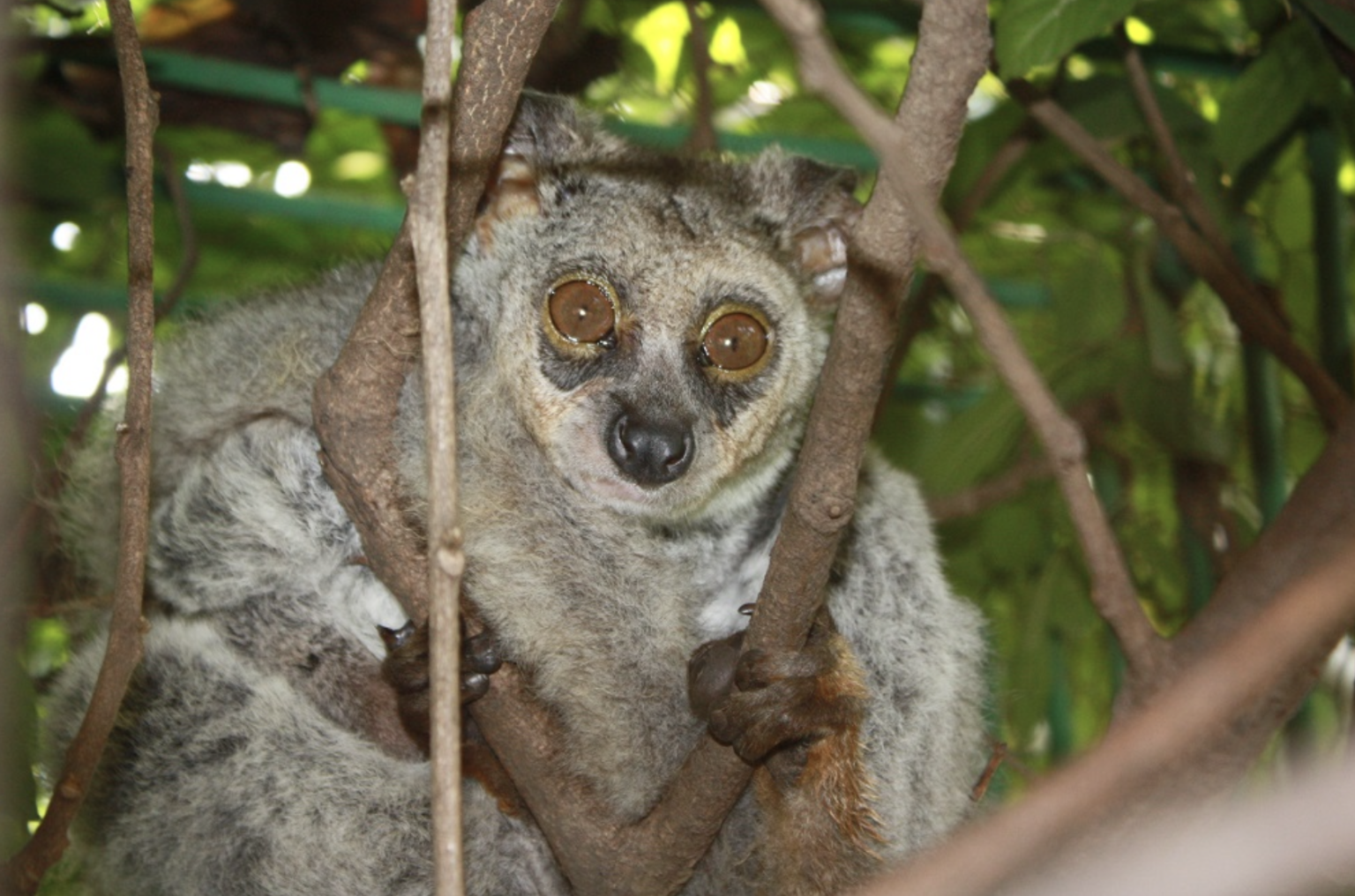
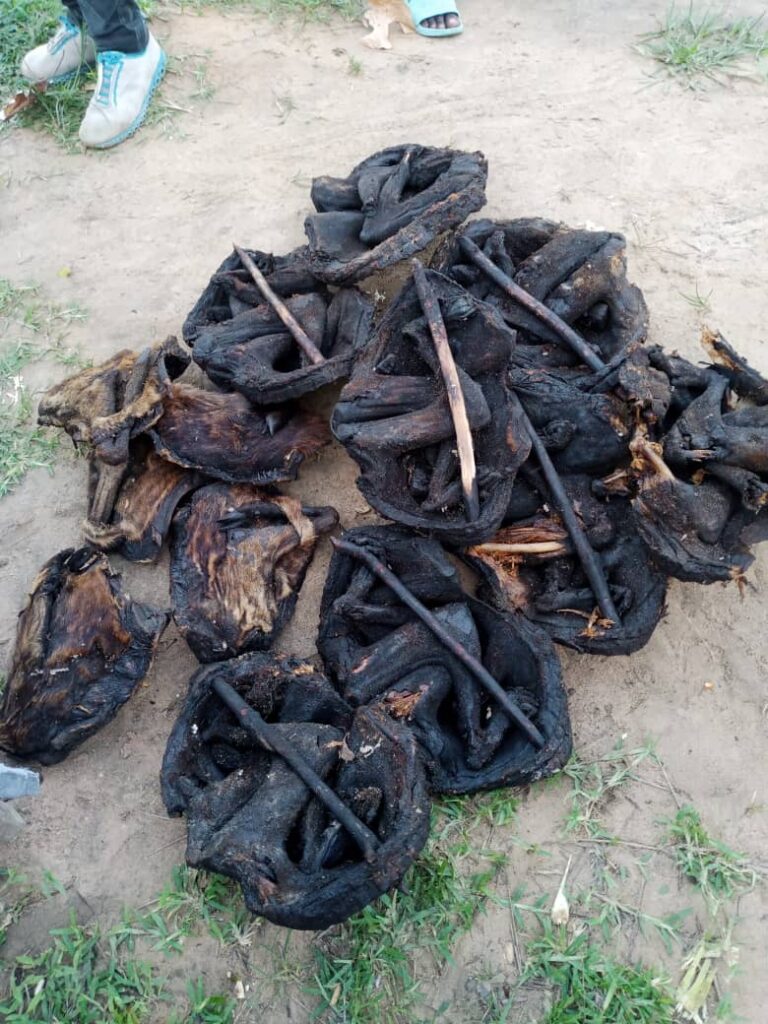
THE BUSHMEAT TRADE
Bushmeat represents 80% of the protein intake for the local population and plays an important role in terms of dietary diversity.
This persistent consumption sadly leads to the depopulation of African forests and also generates a continuous growth of orphans linked to the bushmeat trade. These little ones become the by-product of this despicable illegal trade: because they are too thin to be eaten, they are either sold as exotic pets or abandoned in the villages where they become toys for the children.
In addition to this, the trade in exotic species to be kept as pets threatens the survival of wild species, the welfare of the animals, and the health of humans and other animals.
At every stage of the trade in exotic pets, the animals suffer, whether they have come from the wild or from a breeding facility.


